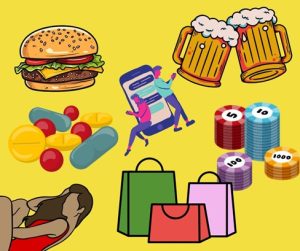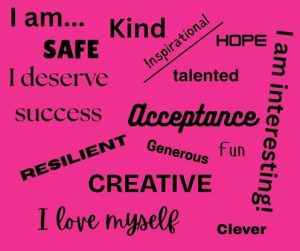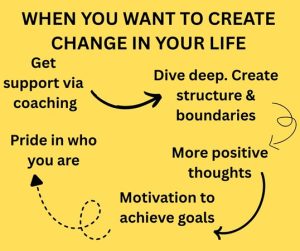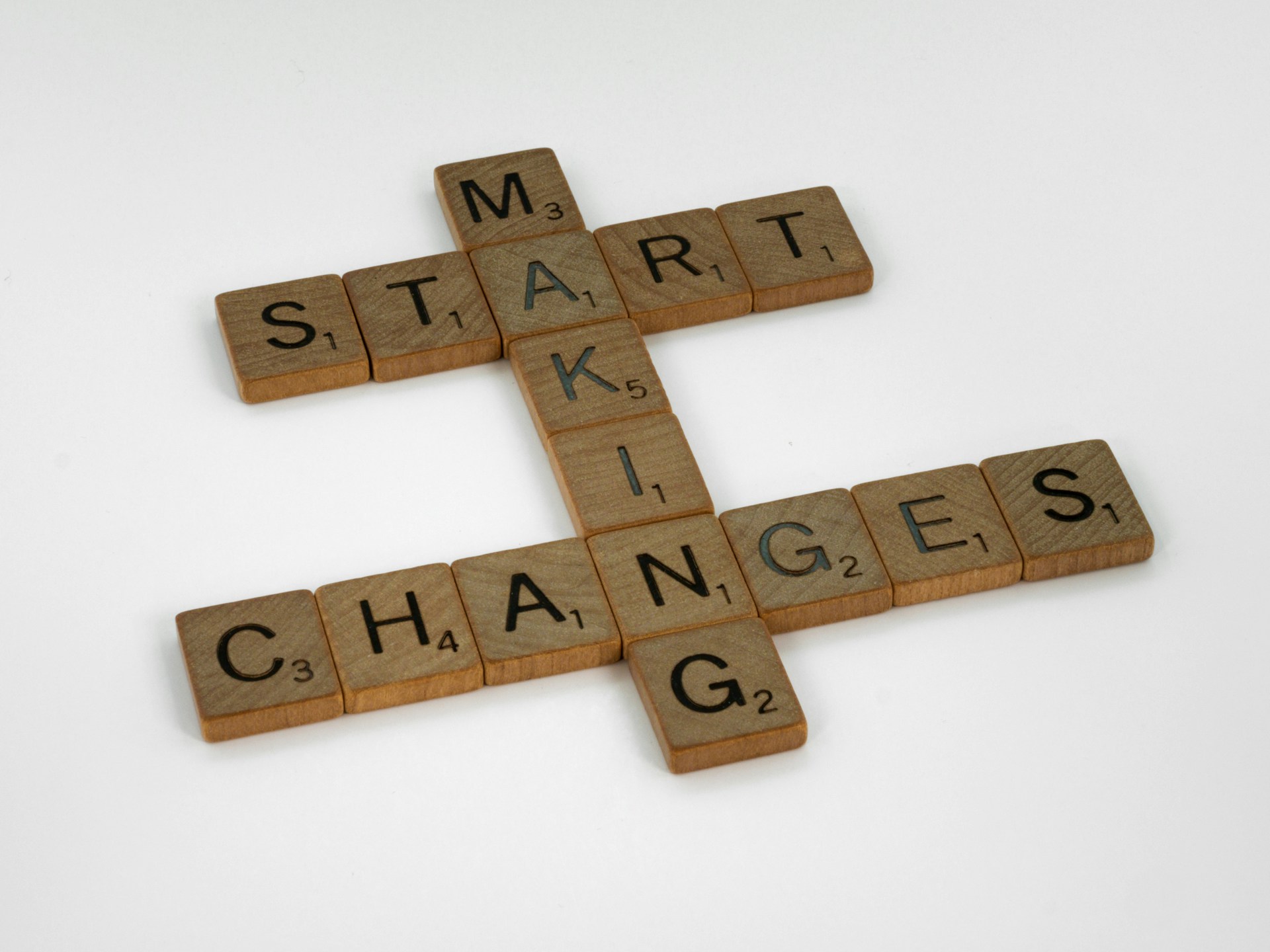In this article, I will talk about the traps that we fall into with habits that steal our joy and what we can do about it.
Few people have nothing that they want to improve on. This article is for anyone hoping to make a positive change in their life that will allow them to become closer to the person they strive to be.
The Habits That Hold Us Back
For example, one thing that most people could put limits on is phone use, which can have a huge impact on how we spend our time, how we make others feel when we are with them, how we set an example to others, and how it affects our own mental health.
There are few people who can resist the temptation of a notification, a quick Amazon shop, or a video when they have a moment and setting some boundaries would be beneficial for us all.
What small change can you make today to lower your phone use?
 For people with ADHD, who are more prone than neurotypical folks to compulsive behaviours, there is dopamine dysregulation in the brain's reward pathway, which creates impulsivity and a constant search for stimulation. For them, it increases the risk of compulsive actions like excessive spending, scrolling, gambling, eating, nail-biting, smoking, alcohol, drugs, sex… even working and worrying.
For people with ADHD, who are more prone than neurotypical folks to compulsive behaviours, there is dopamine dysregulation in the brain's reward pathway, which creates impulsivity and a constant search for stimulation. For them, it increases the risk of compulsive actions like excessive spending, scrolling, gambling, eating, nail-biting, smoking, alcohol, drugs, sex… even working and worrying.
So, this information is especially useful to you. It's a challenge, but one well worth beating.
So How Can We Take Good Care of Ourselves and Do Some Serious Damage Limitation?
Know It's Possible
Neuroplasticity is the science-led knowledge that we can and do make new neural pathways in the brain when we repeatedly choose a new behaviour. Carve out those positive pathways and let weeds grow over the negative ones. Know that we are absolutely capable of creating change.
Know Yourself Well
 If you know you have these addictive tendencies or a weakness in one area, stay on your guard. Know what triggers you to dive into negative behaviour. It may be moments of boredom, stress, shyness, or when your head fills with negative thoughts. It may be a way of comforting yourself. Or perhaps you've been taught by your parents, so it feels like the most natural thing in the world.
If you know you have these addictive tendencies or a weakness in one area, stay on your guard. Know what triggers you to dive into negative behaviour. It may be moments of boredom, stress, shyness, or when your head fills with negative thoughts. It may be a way of comforting yourself. Or perhaps you've been taught by your parents, so it feels like the most natural thing in the world.
But there is always room for choice. And the best way to want to take care of yourself is by having a positive mindset. Self-love, self-compassion, and acceptance of yourself as you are (warts and all) are important parts of developing a strong survival instinct that will lead you to protect your own mind, body and finances!
This is where coaching steps in. Seeing a coach can stop you hiding from yourself. It's a structured time where you lead the way and come up with your own solutions, with some guidance via empowering questions that will help you to see things in a new and positive way. As your self-regard improves, you can move onto the next step.
Understand Your "Why"

Consider why changing a behaviour is important to you. Who do you want to be? What life do you want to lead? What is holding you back? How would you feel once you crack this? What will you replace this habit with? If you're going to leave a hole in your life, it's best to make a conscious choice about how to fill it.
For example, if you want to give up smoking or drinking, then visualise the new, healthy version of you. Imagine waking up feeling fresh, with lungs able to take deeper breaths. Switch the time spent on past habits to something new, like sport or outdoor activities, to give the "new you" a purpose.
Instead of becoming a person who has given up smoking, become a person who is on a mission to get fit. Take the focus off the old you, turn the corner, and fully embrace the person who is emerging.
Reframe the old habit into an undesirable one. Every time you say, I would love a cigarette but I've given up, you're making it harder to see this through. Look at the thing you want to stop in all its negative outcomes, paint that picture again and again until it sticks, become repulsed by it!
Another important step is to change the way you speak to yourself. Update your inner voice to match the change you've made and ensure it's on your side. Talking of support, who would you go to when you need added momentum?
In moments when you could waver, try this exercise:
Give yourself time to think about how things would be if you don't stop this habit. How would that feel in one year? What effect could it have in five years? How would your outcome change in ten years if you're still doing that negative thing? How will it affect the people around you?
Remember — seeing a coach will help you stay focused on getting to the finish line.
How to Start
Getting started can be the hardest part. You can use the 5-4-3-2-1 countdown which doesn't give your brain time to come up with an excuse. Then just do it!
Don't expect to feel motivated every minute of every day. Sometimes you need to just push through and rely on knowing you'll feel better afterwards. Think through how you might self-sabotage and come up with a plan to tackle that beforehand.
You may need to break the process into small steps so it doesn't feel insurmountable.
Example:
When starting to eat healthily —
- Do the research on Monday and make a shopping list.
- Buy the ingredients on Tuesday.
- Start with a protein breakfast on Wednesday (notice how focused you are after it).
- Make some vegetable soup and chickpea curry for Thursday and Friday.
- Commit to the new meal plan from Saturday, and plan your week's packed lunches on Sunday.
If we're talking about handling clutter in the home, start slowly. Take one new action daily, and it will build up over time to a very different outcome.
The 2-minute rule is great, if it only takes two minutes, do it immediately. No procrastination allowed!
A coach can check your level of commitment and help you find ways to increase it.
Don't Hide From Your Habits
If you're finding it hard to stop a well-ingrained habit, break it down and create an interrupt.
If you're hooked on shopping, that may look like this:
- Going to the shops / looking online.
- Seeing the thing that catches your eye.
- Deciding you deserve it.
- Feeling that you can't lose this opportunity.
- You buy it.
You've skipped the steps of:
- Do I need it?
- Can I afford it?
- Will my partner be cross with me for spending again?
- Do I have space for it?
 After step 5, reality kicks in, guilt and shame replace the buzz.
After step 5, reality kicks in, guilt and shame replace the buzz.
Go back to step 1: you know you're putting yourself in the danger zone. If that can't be avoided, your next chance to save yourself is step 2. Introduce a STOP sign there, go through the missed questions, and give yourself time to think. Often, once the moment passes, the desire will too.
There's also room for celebration when you successfully resist the buy! Make your buzz about the control used to not buy the item instead of the thrill of purchase.
Come up with a new motto:
Instead of "Shopping is my medicine," try "I have everything I need" or "Memories over things."
The key is not to allow your habits to live in the large underwater part of the iceberg that's out of sight and dark with shame. Keep them visible, face up to them.
To Make Change Last
So, you've given up. You've been congratulated by everyone, including yourself. You feel good! But the momentum is tailing off.
Am I really going to stop forever?
What harm would it do to do that thing occasionally?
Your "why" is fading. Go back and rebuild it stronger.
Focus on the new you and the benefits you're receiving. Consistency and repetition will see you through. Remind yourself how far you've come and how close you are to success.
A good friend of mine gave up smoking for a year, then slipped back. Not long after, she developed COPD and that was it. Her chance was gone.
A new habit takes approximately 66 days to bed in. Follow the steps, stay occupied, and keep going. One day, you'll barely remember why you used to do that thing. But don't get complacent, remember what a lucky escape you had.
How good would it feel to be free?
Use self-belief, positive affirmations ("I am willing and able!"), gratitude, and compassion. Celebrate your growth daily. Keep your vision clear and close.
As Tony Robbins says — Happiness = Progress.
And If You Slip Up…
 The worst thing you can do is give yourself a hard time.
The worst thing you can do is give yourself a hard time.
I'm a failure. I'm useless. I can't do this.
Focus on the behaviour, not on yourself. Learn from your mistakes. Notice what tripped you up and find a workaround. It's how you handle the hiccup that matters. Don't let it be an excuse to give up altogether.
Mindset, Life, and ADHD Coaching are forward-thinking, empowering ways to bring awareness to your daily choices, thoughts, beliefs, and goals, and see them for what they are. Once light is shone on your darker corners, it becomes harder to ignore them, and the way forward becomes clear.
Main – Photo by Brett Jordan on Unsplash





